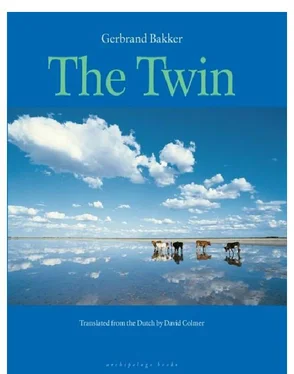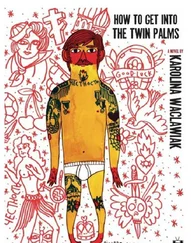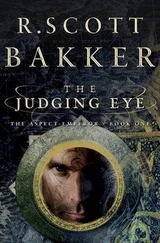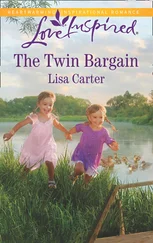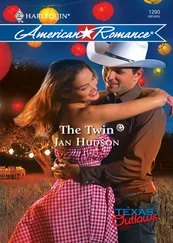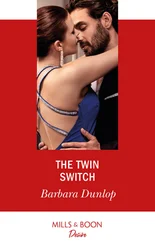“I broke a leg a long time ago,” she says when she notices me looking at the way she walks. “It stiffens up in cold weather.”
Skiing? A bike accident? A wet floor in the pig shed?
“I was cleaning the kitchen ceiling and the stepladder slipped.”
Sunlight comes in through the square windows, a cow groans and a mangy cat shoots off. It’s a cat I can’t remember having seen before. Is it one that escaped last spring’s motorized cull?
“What kind of animals are they, pigs?” I ask.
“They’re not cows, that’s for sure.” She rests her hand on the bundled lengths of baler twine hung up on an enormous nail. “Piglets are cute, but the older they get, the nastier.”
“And then they’re ready for slaughter.”
“Yes, then they’re ready for slaughter.”
“And your husband?”
“What do you mean?”
“What kind of fellow was he?”
She thinks for a moment. “He was respectable. He was a respectable man.”
“Respectable?”
“Yes.”
We walk into the yard. Riet pulls the collar of her coat tight. “My daughters are respectable women. Maybe Brabant brings that out in people, respectability.”
“And your son?”
“What have you got there!” blurts Riet as she catches sight of the donkey shed. She walks up to it. “This never used to be here. Did it?”
“No,” I say. “The donkeys are new.”
“Donkeys!”
They’ve heard us and are standing inquisitively at the railing with their heads up. When they see us, one starts to swing her head. The light has been on all night.
“Would you like to feed them?” I ask.
“Yes, please.”
I take a few large winter carrots out of the box on the bale of hay and give them to Riet. She sticks two carrots through the bars at once. They disappear in the donkeys’ mouths with a snap. I scratch the donkeys’ ears. For a moment everyone is happy. There’s something comforting about her having established that we both feel strange.
Riet walks from the donkey shed to the chicken coop. She waves a hand at the willows, a little impatiently, maybe to let me know that she can see they’ve been pollarded recently. And that Henk would have pollarded them if things had turned out differently. “You used to have brown chickens here,” she says, peering in through the wire.
“That’s right, Barnevelders.”
“And these?”
“These are Lakenvelders.”
“They’re beautiful. Are they good layers?”
“They’re okay, not as good as the Barnevelders.”
The chicken coop leads inevitably to the causeway gate. She leans her forearms on it and stares out over the fields. It’s incredibly light because of a thin layer of snow on the grass. The ditches are steaming. “The windmill,” she whispers.
I’m not in the mood for that at all. I turn and start walking towards the milking parlor. A little later she follows, I hear her irregular footfall on the frost-hardened yard. Now, with my left arm, I gesture at the donkey paddock. “In good weather they’re out there,” I say. We walk through the milking parlor to the scullery. I cut straight through to the hall door, Riet stops in front of the door to the staircase.
“You coming?” I say.
She doesn’t answer.
“I thought,” I try, “if we eat an early lunch, we can go for a walk to the cemetery afterwards.”
She doesn’t answer.
I keep at it. “Then I can take you back to the ferry on time, before milking.”
She doesn’t answer.
“What is it?” I ask.
“I want to go upstairs.”
“To Henk’s room?”
“Yes.”
I pull the door open and lead the way upstairs. I open the door to Henk’s room. Riet walks in expectantly. I stay in the doorway — it’s so full inside there’s only room for one of us. She looks around and sits down on the bed for a while.
Then I can’t see her any more, she has disappeared completely under Henk and the January sunlight has made way for August moonlight. Henk’s white underpants have got stuck at his knees and his body is going up and down, a movement that doesn’t seem right for someone his age. I can almost smell him. He is holding his breath, the dimple above the crack of his bum is damp, he presses her deeper and deeper into the old mattress, his Achilles tendons are part of the up-and-down, as if the movement is a wave that starts in his toes.
“. . his bed?”
“What?”
“Is this the bed Henk slept in?”
I blink a few times, it takes a while for the warm August night to turn back into a January morning. “Yes.”
“I don’t recognize it. There’s so much junk in here.” She lays her hands beside her on the blanket — as if she has no plans ever to stand up again — and looks out of the window. “That hooded crow is still there,” she says.
“Come on,” I say.
She stands up and leaves the bedroom.
“My old bedroom,” I say casually and fairly loudly as we walk past the second door. I notice the key and try to remember whether I locked the door. “Full of junk as well.” I hurry on through to the new room, whose door is wide open. Riet follows.
She leans against one of the walls, knees bent slightly and her jumper bunched up around her shoulders. “His face,” she says. “His face in that cold water. His hair floated back and forth like seaweed.”
“Nothing’s changed here at all,” she says.
“They’re not allowed to build.”
“Why not?”
“Heritage area.”
We’re walking through the village to the cemetery. Ten minutes ago Ada just happened to be watering the plants on her kitchen windowsill. The sun has only just passed its highest point but our shadows still stretch out in front of us. “You should come back in late summer,” I say. “For years now there’s been a kind of competition going on here.”
“What do you mean?”
“Who has the most hydrangeas in their front garden. Preferably in as many colors as possible. It’s everywhere, a hedge of hydrangeas half a mile long. If you haven’t got hydrangeas, you don’t belong.”
“I don’t like hydrangeas.”
In the distance is the white church, on the western edge of the village. I feel like I’ve said enough and we carry on in silence. When we arrive, Riet ignores the church and walks between the poplars to the bank of the Aa.
“We went skating here in the winter of 1966,” she says.
“1967,” I say. “January 1967.”
“Either way, that winter. Winter always goes from one year to the next.”
She’s right about that. Winter is a season that doesn’t limit itself to the calendar year, a season that straddles years. Now, apart from a thin film between the reeds, there’s no ice at all. A pair of ducks — drakes — race towards us. They jump up onto the bank like penguins. Riet watches the ducks coolly and turns away. She crosses the street and tugs at the cemetery gate. She keeps on tugging until I’m next to her, slide open the bolt on the back of the gate and, bending forward, swing it open for her. Without a word she walks into the cemetery.
When we’re at the grave, I say, “You’re grateful to Father now, I guess.”
“Why, for God’s sake?”
“He’s the one who renews the rights to the grave every ten years.”
“Hmm,” she says.
To me Riet seems like the kind of person to run her fingers over the letters. She doesn’t. Instead she sits down on a green bench on the shell path next to the church. I take a few steps backwards and stand with my back against the cold wall. I stick my hands in my pockets.
“I wasn’t angry at your father,” she says. “I felt humiliated. Later, sure. Later I got angry and I stayed angry.”
Читать дальше
